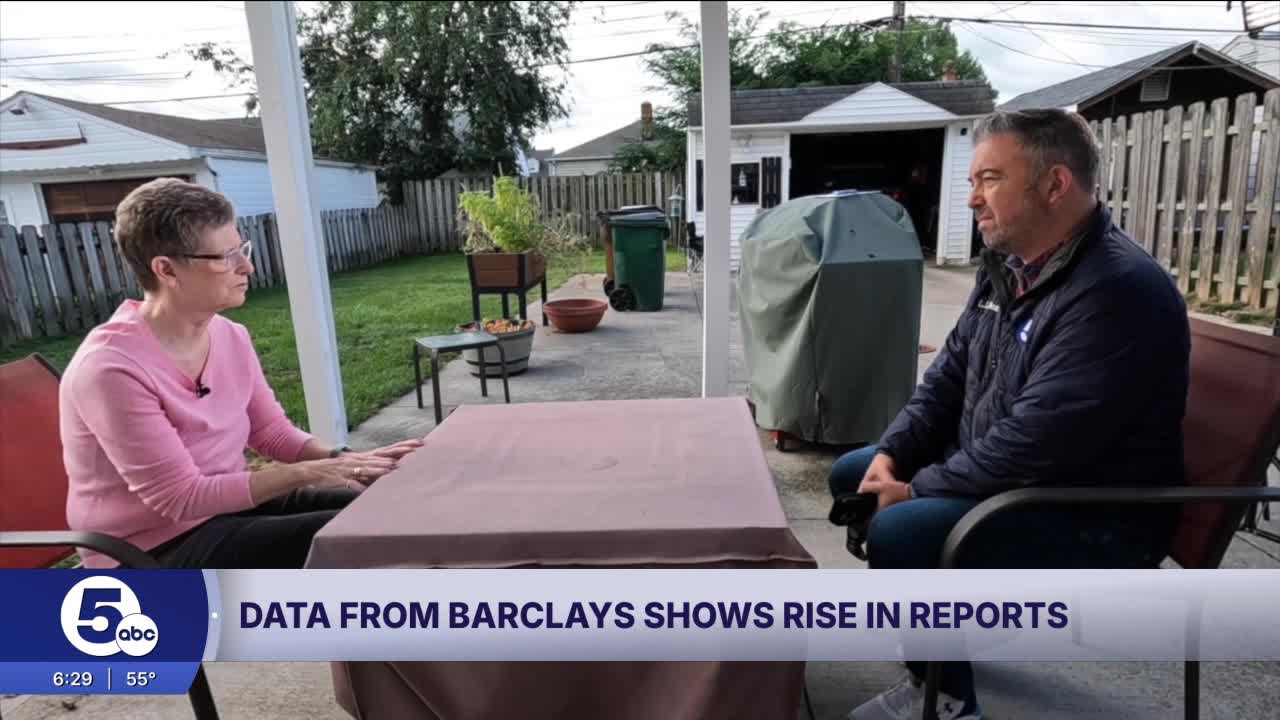PARMA, Ohio — A Northeast Ohio woman is sharing a painful warning after her late ex-husband lost tens of thousands of dollars in a sophisticated romance scam.
The story began when Sue Collins’ ex-husband, Dave, told her he had met someone special on TikTok. Dave, who was living in a nursing home, was lonely and excited about the new connection.
"He found this woman on TikTok and he was so happy about it," Collins said.
But Collins was skeptical from the start. The woman called herself "Sydney" and claimed to live in Saginaw, Michigan.
"He showed me pictures of her and I thought it was too good to be true," Collins said.
Her suspicions grew after she used an internet search tool to look up the photos.
"I did a Google lens and the picture blew up all across social media," she said.
Dave and "Sydney" often talked on the phone, making plans to meet for a concert or a weekend getaway. But the meetings never happened. Collins said there was "just one grandiose excuse after another."
Soon, "Sydney" started asking Dave for money. The requests began small — $193, $100, $282. The funds were sent through a money transfer app to accounts with unfamiliar names.
"Who is Cedric? Who was Kimberly? Who was Jeffrey? He did not know," Collins said.
Friends and family tried to intervene, but Dave was already too emotionally invested.
“Week after week I just kept telling him, this is a scam," Collins said.
The scam escalated when "Sydney" convinced Dave to open joint accounts to help her access a fake $1 million inheritance she claimed was stuck in London.
Romance scams are on the rise. Data from Barclays Bank shows a 20% increase in the first quarter of this year compared to last year.
Cheryl Harris with the Cuyahoga County Scam Squad says scammers are patient and exploit emotional vulnerability, especially among older adults in assisted living or nursing homes.
"It's not just a financial loss at the end of the day. It's like you had so much emotionally invested in it," Harris said.
Harris advises family members to approach the situation with care. She suggests asking gentle questions and listening with an "open spirit." Becoming judgmental can cause the victim to become defensive and turn back to the scammer for reassurance.
In total, Collins estimates Dave lost between $40,000 and $55,000. She says he finally realized he had been scammed about six months before he passed away in August.
"It's sad," Collins said. "So hopefully this will prevent somebody else from falling into the same scam."




